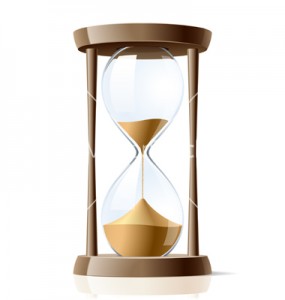David graciously posted for all of us last night, notifying us of troubles accessing Scalar, which seemed at the time to have disappeared. When you’re looking for a needed tool, especially under deadline, and it appears to have vanished or changed or its functionality is impaired, what to do? My answer: there are steps you can take to see the nature of the problem. Continue reading “Scalar downtime, and how to know between downtime and disappearance”
Author: Andy Schocket
Embracing ephemerality in the digital humanities

One thing that not many digital humanists write about directly, but has become increasingly clear to practitioners in the field, is how ephemeral so much of our thought and work is, especially in comparison to traditional humanities products likes articles and books. What if, while still trying to make our projects more sustainable, we were also to accept ephemerality as central to digital humanities practice? Continue reading “Embracing ephemerality in the digital humanities”
Three things to get you through HTML/CSS and coding
Here are few things to think about, as you do your HTML/CSS on Codecademy, and then do your coding, but a lot of this will help for just about any of our tool/methodology exercises. They may not be as useful as the three things that Homer taught Bart, but they cover quite a bit. Continue reading “Three things to get you through HTML/CSS and coding”
How (and what) to post
Some of you may not have posted on WordPress before. My first instinct was to tell you that it’s pretty easy, and if you have trouble, do an intergoogle search on how to post Continue reading “How (and what) to post”
Why are we here?
Ok, that could be a deeply metaphysical question about life, the universe, and everything, and the answer “42” really is just a joke.
What I’m asking for more immediately is how or why each of us came to this class, ACS6802/HIST6800. We all had choices, after all, in that for grad students at BGSU, there are many classes on offer this semester, and for me, there are certainly many courses that I enjoyed and could teach again (here are a few). Continue reading “Why are we here?”
Welcome, and how to start
Howdy, fellow digital humanities folks, to ACS6820/HIST6800, Spring, 2016 at BGSU.
I’m excited about our course this semester. This is the second time I’ve taught this course (here’s the first iteration), and the first time fully online. In some ways, a lot has happened since then—digital humanities (we’ll call it “DH” for short from now on) is a fast-moving field, technology changes, tools get modified or sometimes disappear—but in other ways, we’re asking many of the same questions. Continue reading “Welcome, and how to start”
Take hope, all ye who enter
This is the second time I’ve taught this course, and the first time entirely online.
Some opening thoughts:
- This class will be different from a lot of courses that you’ve taken, in that it will involve less reading and more doing.
- This class will be more collaborative than most of the courses you’ve taken. That’s by design, as some would argue that collaboration is a necessary part of DH’s DNA (although not always in practice).
- Don’t be intimidated. We’re all encountering something new, and we’re encountering it together.
- Have fun. Each of the skills that we’re working on is meant to be a jumping-off-point for you to learn more by doing, by experimenting, by making things and even breaking things.
- Explore. See those links? Those come from exploring. Whenever you have a question, there’s an internet of projects, answers, tips, tricks, provocations, and conversations just a few clicks away.
I’m looking forward to exploring DH with you this semester.
